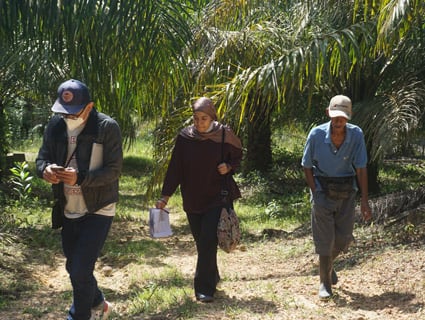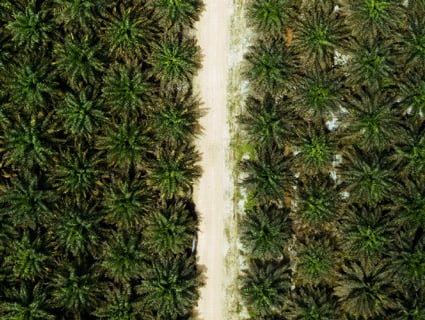Landscape Programs
Many of the challenges in the palm oil supply chain, such as deforestation and human rights concerns, are not specific to a single mill or to the palm sector alone. These issues often are common within a region and across commodities. Therefore, to drive meaningful change, Cargill is focusing on supplier engagement not only at the mill level, but also through interventions more broadly at the landscape level, especially in high-priority landscapes. Shared action is needed to tackle persistent, complex social and environmental risks involving multiple mills, growers, buyers and other stakeholders. We recognize that engagement of public institutions is critical to enforce systemic change.
To address these common environmental, land and labor issues, Cargill is joining together pre-competitively in multi-stakeholder industry programs focused on landscape-level interventions. For example, Cargill is one of seven palm oil purchasing and consumer goods companies participating in a collaboration with local government, NGOs, producers and smallholders to achieve sustainable land use in the Siak and Pelalawan districts of Indonesia. Together, we are building on existing efforts to develop scalable solutions, pilot sustainable approaches, support local organizations, improve smallholder livelihoods and share lessons learned with other landscape initiatives. Learn more about this landscape program.
As of 2022, Cargill is participating in 9 landscape programs worldwide:
Brazil
Tomé Açu landscape program
Colombia
Lebrija River Basin landscape program
Intel4Value landscape program
Colombia Land Initiative
Indonesia
Siak and Pelalawan Landscape Program
Sungai Linau landscape program
Ketapang Landscape program
Hindoli Landscape Program
Malaysia
Southern Central Forest Spine (SCFS) landscape program
To learn about the progress of these programs, see our latest report.
Measuring our performance
We measure progress against the following number of landscape projects:
- Number of landscape projects

Southern Central Forest Spine landscape project: Connecting the dots between forest, soil, and people

